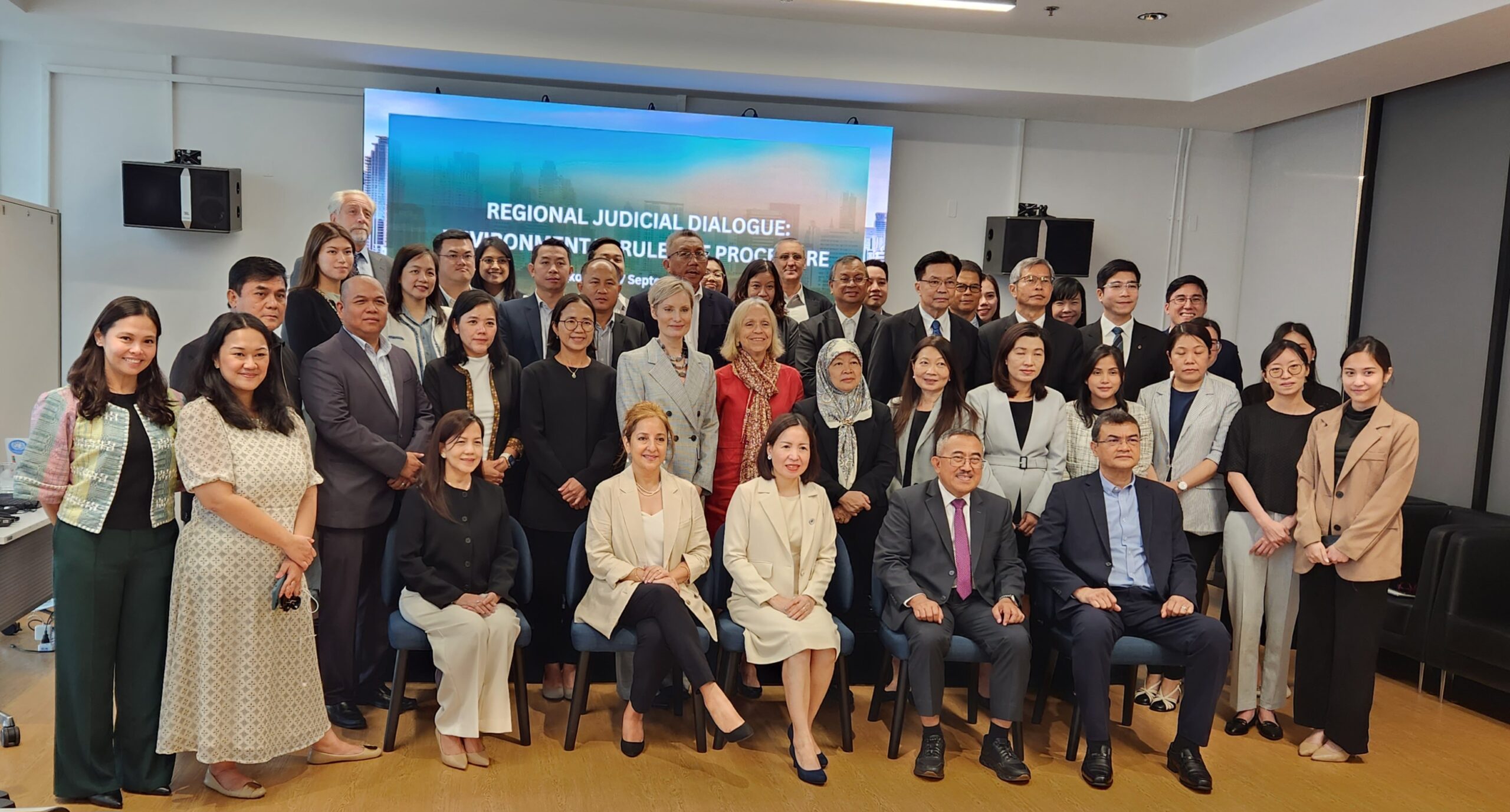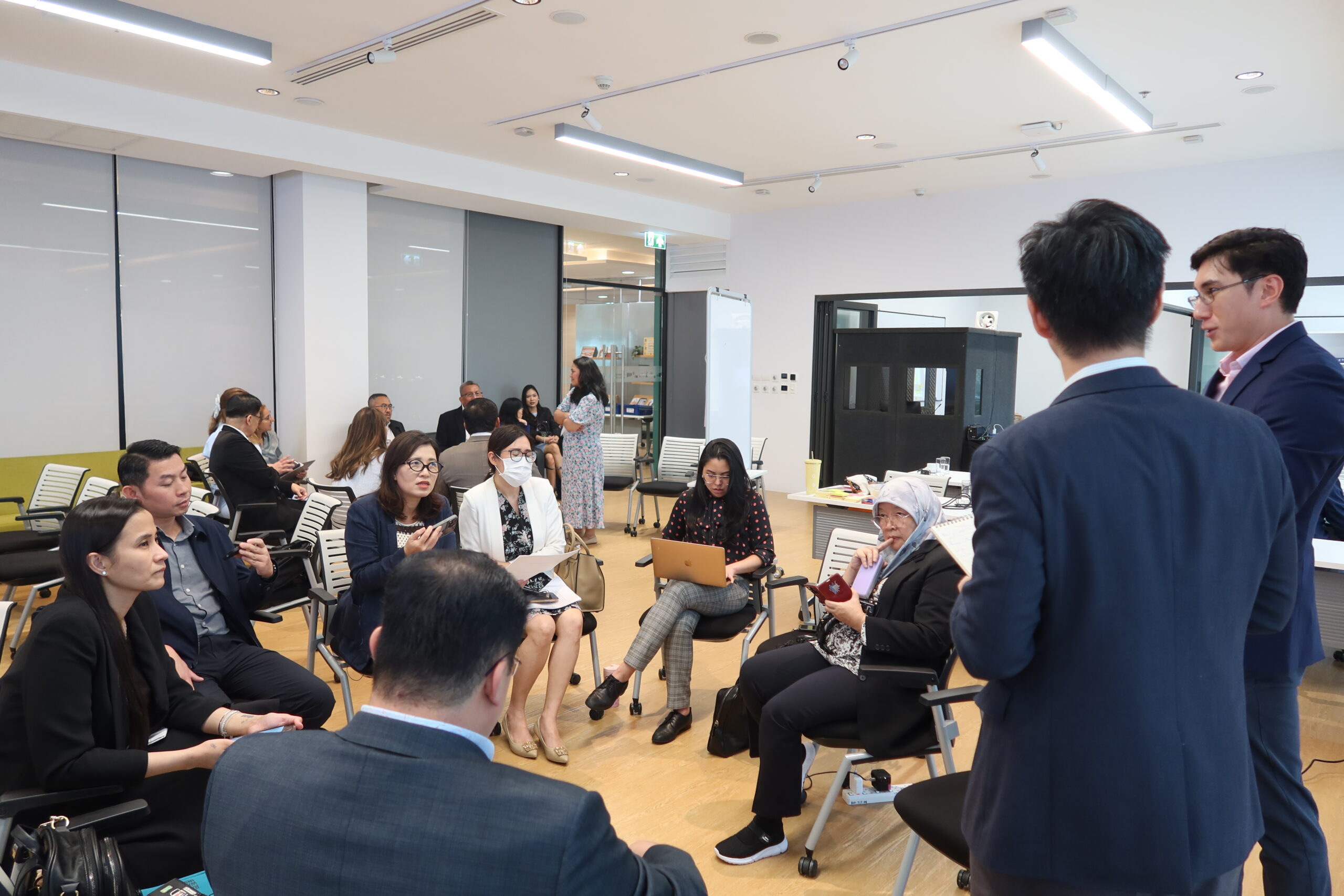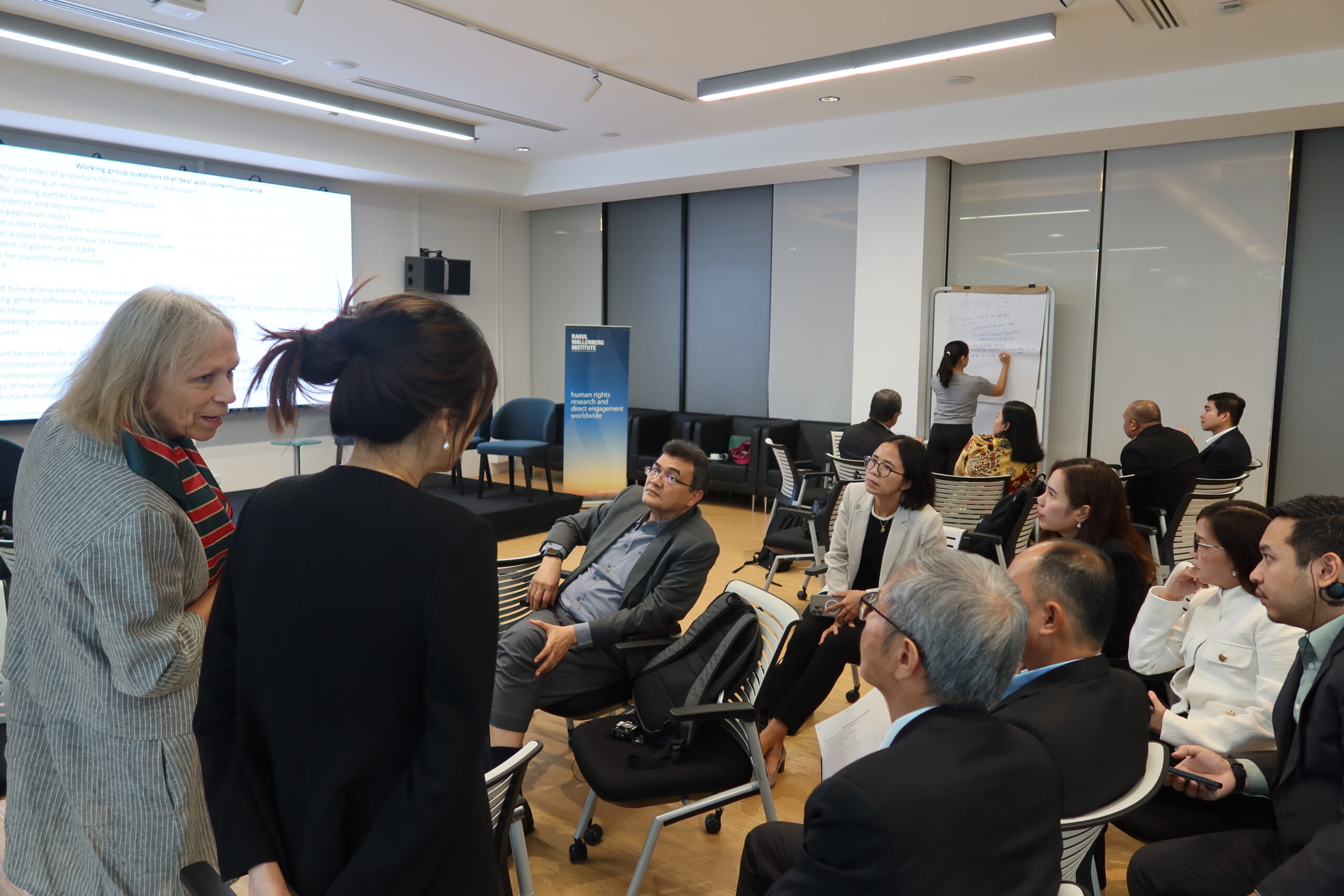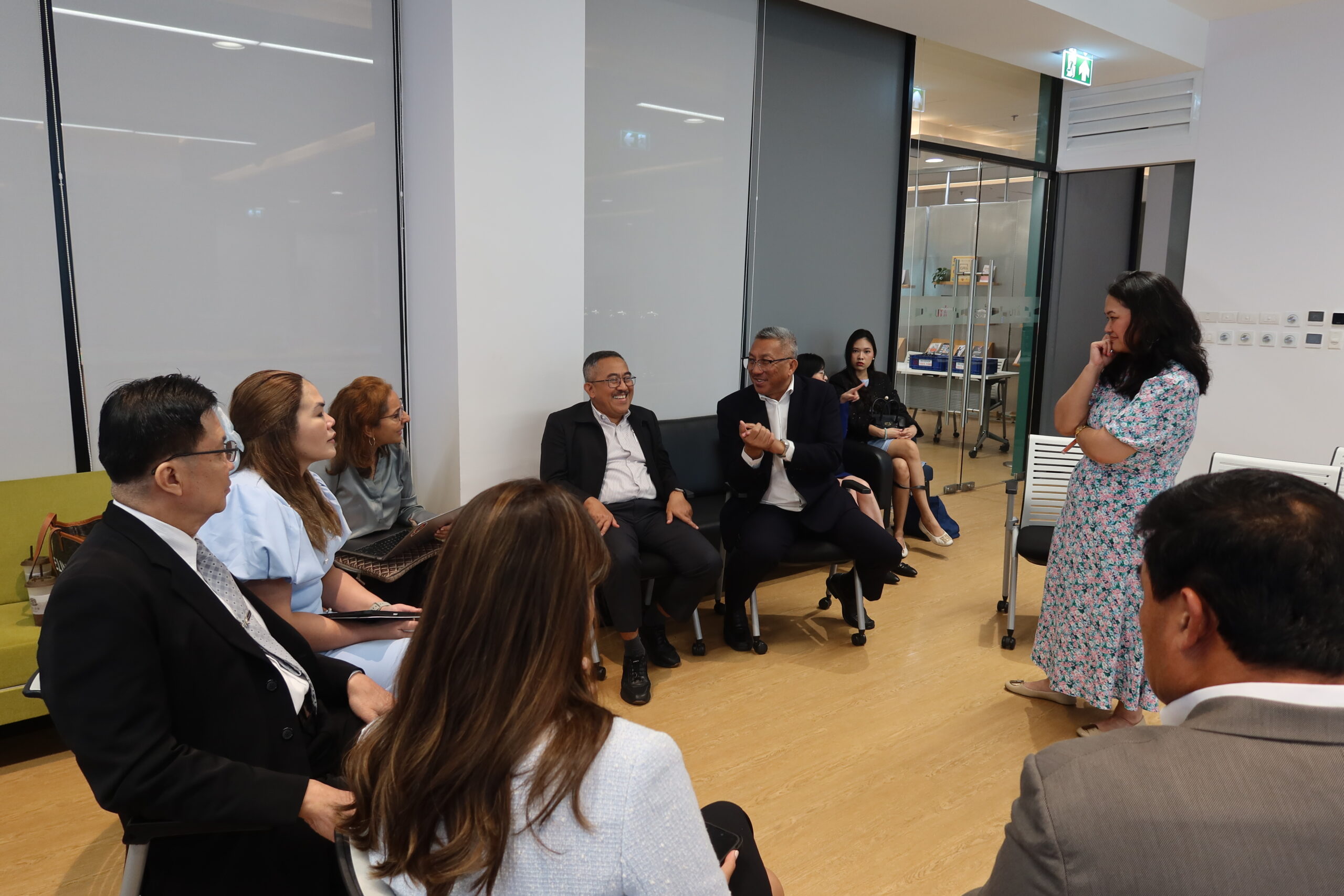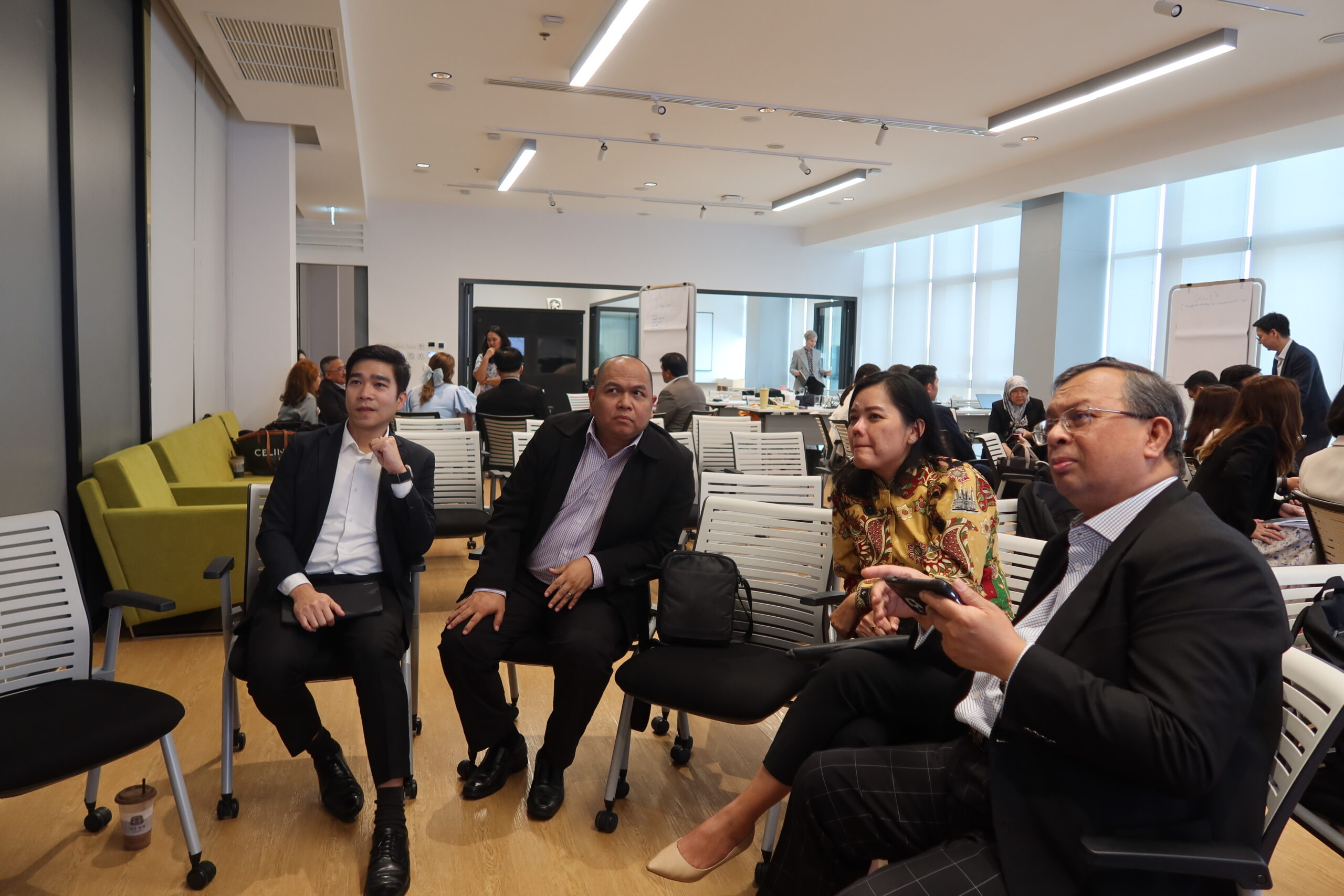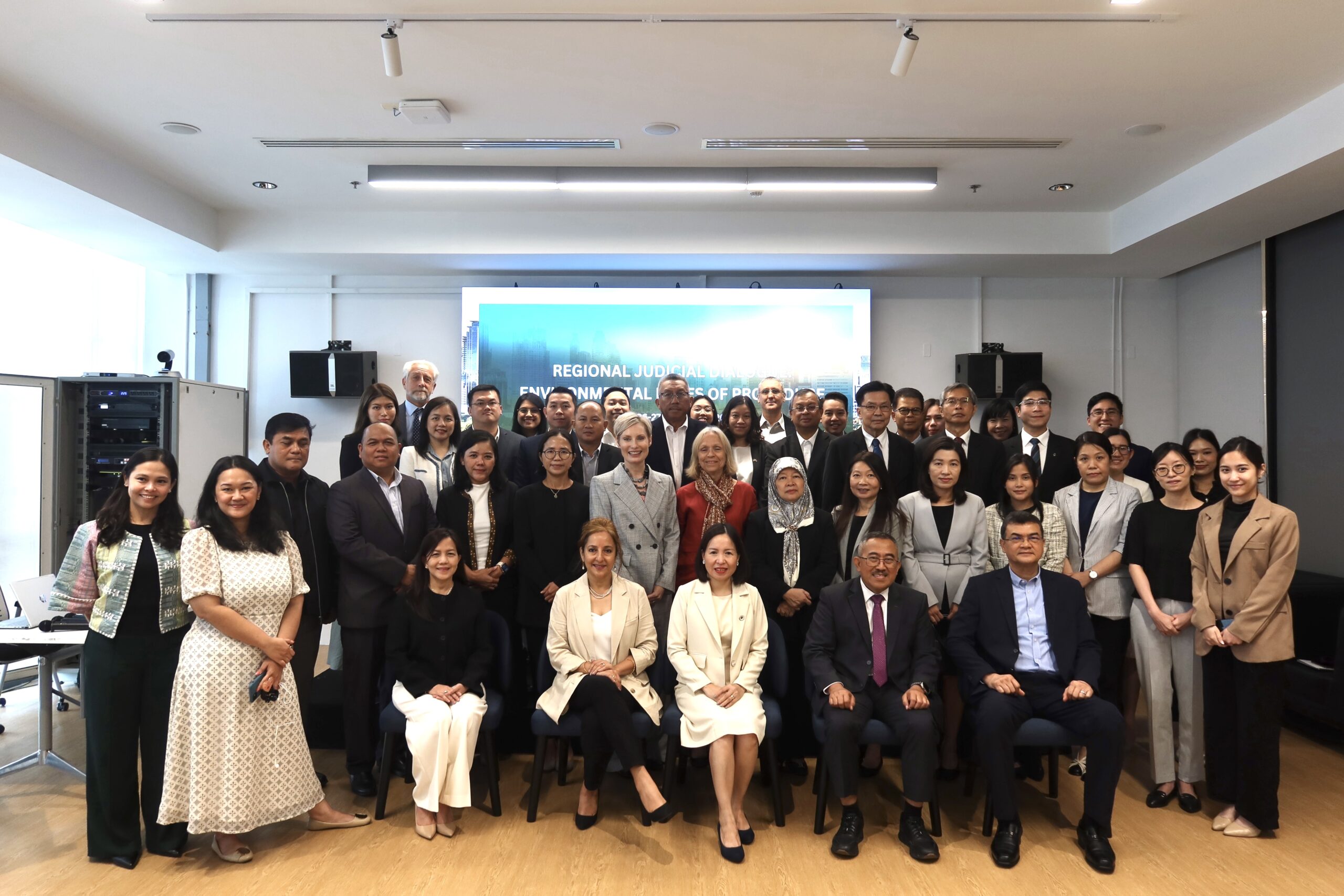On 26–27 September 2024, the International Commission of Jurists (ICJ), in collaboration with the Raoul Wallenberg Institute (RWI) and the Thailand Institute of Justice (TIJ), convened a Regional Judicial Dialogue in Bangkok, Thailand. The two-day event brought together legal experts and members of the judiciary from Cambodia, Indonesia, Lao PDR, Malaysia, the Philippines, and Thailand to discuss the intersection of environmental challenges and human rights, focusing on ensuring that legal procedural rules effectively address cases related to these issues.
A central theme of the dialogue was the “triple planetary crisis”—biodiversity loss, pollution, and climate change. Participants explored the judiciary’s role in interpreting and applying environmental laws, while safeguarding human rights and ensuring access to justice for communities disproportionately impacted by environmental degradation, particularly women and girls.
Discussions also addressed judicial oversight in environmental cases, improving access to evidence, public interest litigation, and the enforcement of court orders. Participants also considered alternative dispute resolution mechanisms as complementary tools to traditional litigation for resolving environmental disputes in accordance with human rights laws and standards.
Melissa Upreti, ICJ Regional Director for Asia and the Pacific, in opening the dialogue, highlighted the Philippines’ Rules of Procedure for Environmental Cases (RPEC) as a regional model, featuring pioneering legal remedies such as the Writ of Kalikasan (Nature), which protects individuals whose constitutional right to a healthy environment is alleged to have been violated, and Environmental Protection Orders, which aim to prevent further environmental damage while cases are being adjudicated.
This judicial dialogue is part of a broader initiative led by the ICJ and RWI aimed at building the capacity of judiciaries to address some of the most critical challenges around a human rights-based approach to the environment in the region. The initiative emphasizes advancing climate justice and addressing its gendered impacts through legal strategies, which include promoting the development of both substantive law and procedural rules that are inclusive and gender-responsive.
At the national level, the ICJ is engaging closely with the Supreme Court of the Philippines with a view to revising the RPEC to adequately address the environmental challenges and harms associated with climate change and ensure that the rules are responsive to its gendered impacts and the needs of groups in situations of vulnerability. This approach may serve as a good practice model for procedural reforms across the ASEAN region.
This judicial dialogue was made possible through the generous support of the Swedish International Development Cooperation Agency (SIDA) and USAID. Expert speakers included Georgina Lloyd (UNEP), Patricia Moore, Sulma Warne (USAID), Jedsada Taweekan (WWF Greater Mekong), Sallie Yang (UNEP), Briony Eales (ADB), and Caleen Chanyungco Obias (ICJ).
Participants in the dialogue included judges and legal professionals from six ASEAN countries. Each country was led by the following representatives:
Cambodia:
Justice Sovannrath Synn, Justice of the Supreme Court of Cambodia
Indonesia:
Judge Bambang Hery Mulyono, Judge and Head of Policy Strategy, Judicial Education and Training, Supreme Court of the Republic of Indonesia
Lao PDR:
Judge Phonepadith Thongbor, Vice Head of Policy Division, The People’s Supreme Court of the Lao PDR
Malaysia:
Justice Dato’ Nordin bin Hassan, Judge of the Federal Court of Malaysia
Philippines:
Justice Wilhelmina B. Jorge-Wagan, Justice, Court of Appeals
Thailand:
Justice Sawat Kongmai, Research Justice of the Supreme Court of Thailand
Justice Kreangkri Srisung, Chief Justice of the Environmental Case Division, Acting Chief Justice of the Money Laundering and Civil Measures Division, Civil Court of Thailand
These representatives, along with their respective delegations of judges and legal professionals, contributed to the regional discussions on environmental and judicial matters.
